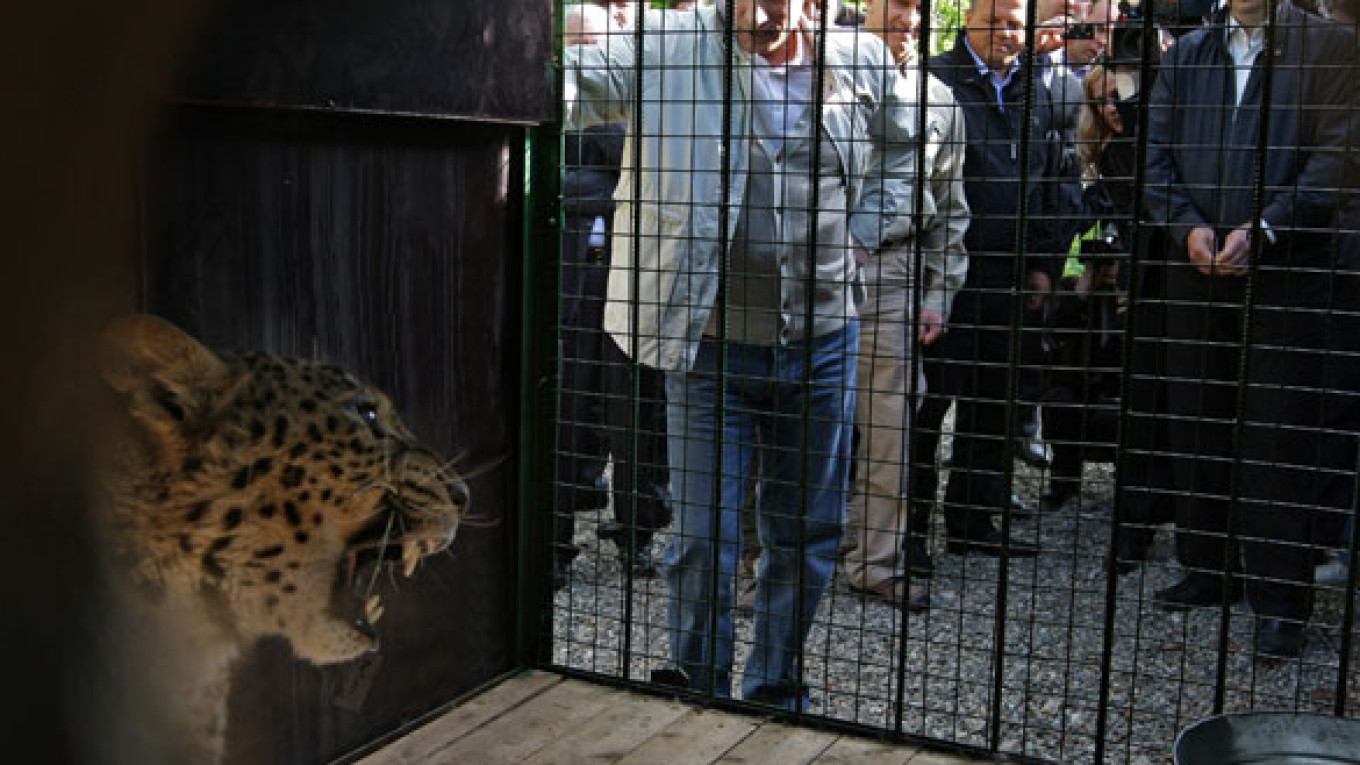Chechen President Ramzan Kadyrov has joined Prime Minister Vladimir Putin on a list of 40 "predators of press freedom" compiled by Reporters Without Borders.
The list, compiled annually since 2000, contains politicians, officials and groups who "cannot stand the press, treat it as an enemy … are powerful, dangerous, violent and above the law," the organization said in a statement Monday.
Reporters Without Borders said Kadyrov was linked to the murders of two outspoken critics of Moscow's handling of the conflict in Chechnya, Anna Politkovskaya and Natalya Estemirova. Politkovskaya was gunned down in Moscow in 2006, and Estemirova was abducted in Grozny last July and found dead hours later in Ingushetia.
"Both these murders had Kadyrov’s prints on them, as have many others that have taken place under the regime of terror he has imposed in Chechnya," the group said.
It added: "No one should be fooled by [Kadyrov's] confident pretense of tolerance and a benign view of press freedom."
Turning to Putin, the group accused him of being responsible for increased state control over the country's media, deteriorating working conditions for independent journalists and human rights activists and promoting "a climate of pumped-up national pride" that encourages the persecution of dissidents and fosters impunity.
Five journalists were murdered in the country in 2009, bringing the overall death count since 2000 to 22, it said.
Along with Taliban leader Mullah Omar, Kadyrov is the only new entry on this year's list, which brings together dictators like North Korea's Kim Jong Il with rebel militias from Somalia and the Philippines and Mexican drug cartels.
Russia is the only country with two politicians on the list, which features five other post-Soviet leaders: Alexander Lukashenko of Belarus, Azerbaijan's Ilham Aliyev, and the presidents of Turkmenistan, Kazakhstan and Uzbekistan.
Monday marked World Press Freedom Day.
A Message from The Moscow Times:
Dear readers,
We are facing unprecedented challenges. Russia's Prosecutor General's Office has designated The Moscow Times as an "undesirable" organization, criminalizing our work and putting our staff at risk of prosecution. This follows our earlier unjust labeling as a "foreign agent."
These actions are direct attempts to silence independent journalism in Russia. The authorities claim our work "discredits the decisions of the Russian leadership." We see things differently: we strive to provide accurate, unbiased reporting on Russia.
We, the journalists of The Moscow Times, refuse to be silenced. But to continue our work, we need your help.
Your support, no matter how small, makes a world of difference. If you can, please support us monthly starting from just $2. It's quick to set up, and every contribution makes a significant impact.
By supporting The Moscow Times, you're defending open, independent journalism in the face of repression. Thank you for standing with us.
Remind me later.


